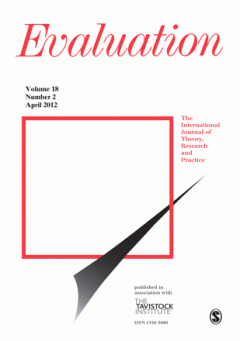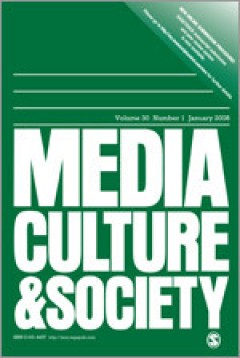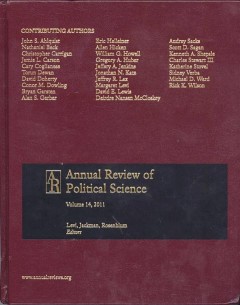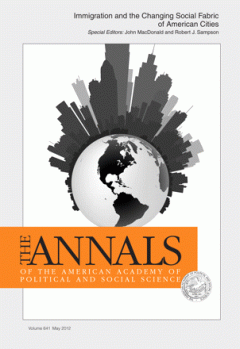Filter by

Experimentalism and development evaluation: Will the bubble burst?
Bridging the current divide of opinion about experimentalism would help protect an evaluation brand currently under threat in international evaluation circles. In order to help settle a lingering and unnecessary controversy, this opinion article describes the policy force field that triggered the recent surge of interest in experimental methods in development evaluation; digs up the historical …
- Edition
- Volume 18 Number 2, April 2012 p. 213-229
- ISBN/ISSN
- 1356-3890
- Collation
- 213-229p.
- Series Title
- Evaluation
- Call Number
- -

A trial of impact evaluation utilizing effect size statistics: Its applicatio…
This article proposes a method of evaluating effect, impact and efficiency of treatment using the standardized mean difference (SMD) of outcomes between the treatment and the control groups. Since the SMD is commensurable (divisible and measurable by a common standard), here it is given a unit name ‘effect’ as an expression of the ‘standardized effect’. Based on the assumption that impact is th…
- Edition
- Volume 18 Number 2, April 2012 p. 230-245
- ISBN/ISSN
- 1356-3890
- Collation
- 230-245p.
- Series Title
- Evaluation
- Call Number
- -

A socio-political framework for evaluability assessment of participatory eval…
Jointly conducted with a coalition of HIV/AIDS community-based organizations (CBOs), this evaluability assessment sought to better understand the factors that affect the feasibility of a participatory program evaluation to be undertaken in partnership with the CBOs’ non-governmental-organization members and public-health agencies. Participatory evaluations and partnerships are grounded in socia…
- Edition
- Volume 18 Number 2, April 2012 p. 246-259
- ISBN/ISSN
- 1356-3890
- Collation
- 246-259p.
- Series Title
- Evaluation
- Call Number
- -

A realist diagnostic workshop
The realist approach can now be said to be part of the repertoire of evaluation methods. There has been a corresponding shift in methodological focus. Polemical thrust and counter-thrust about the realist contribution as compared to that of other evaluative approaches such as randomized trials and meta-analysis has given way to closer examination of its practice ‘on the ground’. This article se…
- Edition
- Volume 18, Number 2, April 2012 p.176-191
- ISBN/ISSN
- 1356-3890
- Collation
- 176-191p.
- Series Title
- Evaluation
- Call Number
- -

One earthquake, two tales: narrative analysis of the tenth anniversary covera…
This article studies media coverage of the ‘921’ Earthquake in Taiwan during two periods in 2009, ten years after the disaster, which occurred on 21 September 1999 (the date which provided the event with its compressed identifier). First it looks at coverage in the wake of another major disaster (Typhoon Morakot) that occurred just before the tenth anniversary of the earthquake, and then during…
- Edition
- Volume 34 Number 3 April 2012, p. 280-295
- ISBN/ISSN
- 0163-4437
- Collation
- -
- Series Title
- Media Culture & Society
- Call Number
- p. 280-295

Trends in political television fiction in the UK: Themes, characters and narr…
British television has a long tradition of broadcasting ‘political fiction’ if this is understood as telling stories about politicians in the form of drama, thrillers and comedies. We identify and discuss three genres in which UK political TV fiction has been shaped throughout the decades: comedy, thriller and drama. We examine the characters, themes and narratives in these genres and assess wh…
- Edition
- Volume 34 Number 3 April 2012, p. 263-279
- ISBN/ISSN
- 0163-4437
- Collation
- p. 263-279
- Series Title
- Media Culture & Society
- Call Number
- -

Constructing the public at the royal wedding
This article examines the way ordinary members of the public, who were present at the celebrations for the 2011 UK royal wedding, were constructed in the televised coverage of the event on the BBC and ITV. It draws on theories of media events and on theories of the mediated construction of the views of ordinary citizens, and focuses on the way vox-pop interviews and inferences about what the pu…
- Edition
- Volume 34 Number 3 April 2012, p. 296-311
- ISBN/ISSN
- 0163-4437
- Collation
- p. 296-311
- Series Title
- Media Culture & Society
- Call Number
- -

At the crossroads of migrant workers, class, and media: a case study of a mig…
This article examines Migrant Workers’ Television (MWTV) in Korea, exploring relationships between migration, media, and class. Existing studies on migrants have mainly focused on the ethnic and media consumption sides of migration. However, MWTV provides a unique picture of migrants, who joined together across diverse ethnic backgrounds and started a media production NGO with shared class inte…
- Edition
- Volume 34 Number 3 April 2012, p. 312-327
- ISBN/ISSN
- 0163-4437
- Collation
- p. 312-327
- Series Title
- Media Culture & Society
- Call Number
- -

Alan Freed still casts a long shadow: the persistence of payola and the ambig…
Despite the enormous changes in the music industry in recent years, some things have persisted. Payola, the exchange of money or promotional consideration for radio airplay, has persisted if not increased over the past decade in the United States. This is due to the corresponding persistence of a series of contradictory social relationships between broadcasters, their sponsors and the audiences…
- Edition
- Volume 34 Number 3 April 2012, p. 328-342
- ISBN/ISSN
- 0163-4437
- Collation
- p. 328-342
- Series Title
- Media Culture & Society
- Call Number
- -

The life cycle of iconic sound bites: politicians’ transgressive utterances…
Politicians in contemporary societies constantly appear in and talk to the media. While media appearances constitute opportunities to communicate ideas and images, politicians can damage their own reputation through making statements that transgress political and/or cultural norms. Politicians’ transgressive utterances not only attract negative media coverage – they may also be recycled in medi…
- Edition
- Volume 34 Number 3 April 2012, p. 343-358
- ISBN/ISSN
- 0163-4437
- Collation
- p. 343-358
- Series Title
- Media Culture & Society
- Call Number
- -

A Life in Political Science
Political science has been a central part of my life for over half a century. This essay records thoughts about the discipline, what it has given me, and what I hope I have given it. It records my entrance into the field and the direction of my work, and offers a personal view of the nature of political science. Using my own work as the examples, it traces the evolution of comparative survey re…
- Edition
- Volume 14, 2011 p. i - xv
- ISBN/ISSN
- 10942939
- Collation
- p. i - xv
- Series Title
- Annual Review of Political Science
- Call Number
- -

Leadership: What It Means, What It Does, and What We Want to Know About It
Leaders are part of virtually all organized political life. There have been important recent advances in modeling “leaders” as well as clever and innovative empirical studies. We review recent contributions from the political science, economics, and management literatures. We discuss the extent to which these new works represent advances over the major classic works on leadership and organizati…
- Edition
- Volume 14, 2011 p. 1-24
- ISBN/ISSN
- 10942939
- Collation
- p. 1-24
- Series Title
- Annual Review of Political Science
- Call Number
- -

Studies of the New Immigration: The Dangers of Pan-Ethnic Classifications
After a prolonged period during which studies of immigration and crime virtually disappeared from the literature, the topic has reemerged as a central theme of contemporary criminology. However, unlike the classic immigration studies that appeared in the first half of the twentieth century, most modern studies combine the various countries of origin into broad pan-ethnic groupings (such as Hisp…
- Edition
- Volume 641, Number 1, May 2012, p. 247-267
- ISBN/ISSN
- 0002-7162
- Collation
- p. 247-267
- Series Title
- The ANNALS of the American Academy of Political and Social Science
- Call Number
- -

The Limits of Spatial Assimilation for Immigrants’ Full Integration: Emergi…
Residential integration with the dominant native-born population is believed to be a crucial stage in immigrants’ overall assimilation process. It is argued that without residential integration it would be difficult, if not impossible, for immigrants to achieve full incorporation into the host society. This article compares the sociospatial experiences of African immigrants in the United States…
- Edition
- Volume 641, Number 1, May 2012, p. 220-246
- ISBN/ISSN
- 0002-7162
- Collation
- p. 220-246
- Series Title
- The ANNALS of the American Academy of Political and Social Science
- Call Number
- -

Immigrants and Social Distance: Examining the Social Consequences of Immigrat…
This project studied the effect of immigrant in-mobility on the trajectory of socioeconomic change in neighborhoods. The authors suggest that immigrant inflows may impact neighborhoods due to the consequences of residential mobility and the extent to which these new residents differ from the current residents. The authors use Southern California over a nearly 50-year period (1960 to 2007) as a …
- Edition
- Volume 641, Number 1, May 2012, p. 192-219
- ISBN/ISSN
- 0002-7162
- Collation
- p. 192-219
- Series Title
- The ANNALS of the American Academy of Political and Social Science
- Call Number
- -

Extending Immigration and Crime Studies: National Implications and Local Sett…
One of American society’s enduring debates centers on the immigration and violent crime relationship. This classic debate is revisited using data for individual homicide incidents and census-tract-level homicides in Miami, Florida, and San Antonio, Texas, in the 1980s and 1990s, respectively. The article starts with these two comparative cases because they mirror the immigration influx, Latino …
- Edition
- Volume 641, Number 1, May 2012, p. 174-191
- ISBN/ISSN
- 0002-7162
- Collation
- p. 174-191
- Series Title
- The ANNALS of the American Academy of Political and Social Science
- Call Number
- -

Why Some Immigrant Neighborhoods Are Safer than Others: Divergent Findings fr…
Contrary to popular opinion, scholarly research has documented that immigrant communities are some of the safest places around. Studies repeatedly find that immigrant concentration is either negatively associated with neighborhood crime rates or not related to crime at all. But are immigrant neighborhoods always safer places? How does the larger community context within which immigrant neighbor…
- Edition
- Volume 641, Number 1, May 2012, p. 148-173
- ISBN/ISSN
- 0002-7162
- Collation
- p. 148-173
- Series Title
- The ANNALS of the American Academy of Political and Social Science
- Call Number
- -

Are Immigrant Youth Less Violent? Specifying the Reasons and Mechanisms
In this article, the authors present an overview of the relationship between immigrant households and crime and violence, drawing on sociological and public health literature. They present a critique of popular culture perspectives on immigrant families and youth violence, showing that crime and violence outcomes are if anything better for youth in immigrant families than one would expect given…
- Edition
- Volume 641, Number 1, May 2012, p. 125-147
- ISBN/ISSN
- 0002-7162
- Collation
- p. 125-147
- Series Title
- The ANNALS of the American Academy of Political and Social Science
- Call Number
- -

Crime and Enforcement in Immigrant Neighborhoods: Evidence from New York City
Immigration and crime have received much popular and political attention in the past decade and have been a focus of episodic social attention for much of the history of the United States. Recent policy and legal discourse suggests that the stigmatic link between immigrants and crime has endured, even in the face of evidence to the contrary. This study addresses the relationship between immigra…
- Edition
- Volume 641, Number 1, May 2012, p. 99-124
- ISBN/ISSN
- 0002-7162
- Collation
- -
- Series Title
- The ANNALS of the American Academy of Political and Social Science
- Call Number
- p. 99-124

The Paradox of Law Enforcement in Immigrant Communities: Does Tough Immigrati…
Frustrated by federal inaction on immigration reform, several U.S. states in recent years have proposed or enacted laws designed to stem the flow of illegal immigrants into the United States and to facilitate their removal. An underappreciated implication of these laws is the potential alienation of immigrant communities—even law-abiding, cooperative individuals—from the criminal justice system…
- Edition
- Volume 641, Number 1, May 2012, p. 79-98
- ISBN/ISSN
- 0002-7162
- Collation
- p. 79-98
- Series Title
- The ANNALS of the American Academy of Political and Social Science
- Call Number
- -
 Computer Science, Information & General Works
Computer Science, Information & General Works  Philosophy & Psychology
Philosophy & Psychology  Religion
Religion  Social Sciences
Social Sciences  Language
Language  Pure Science
Pure Science  Applied Sciences
Applied Sciences  Art & Recreation
Art & Recreation  Literature
Literature  History & Geography
History & Geography